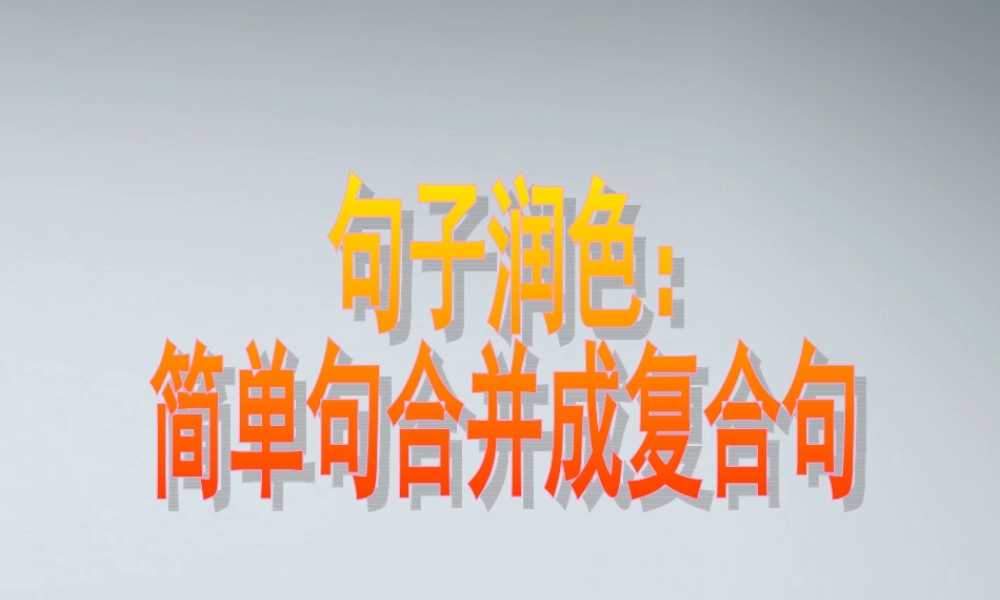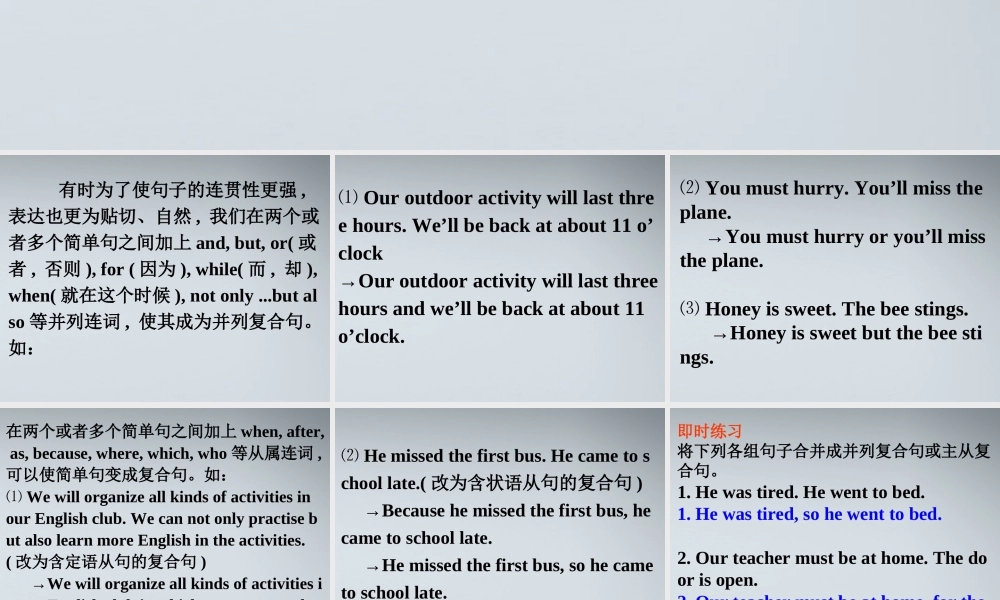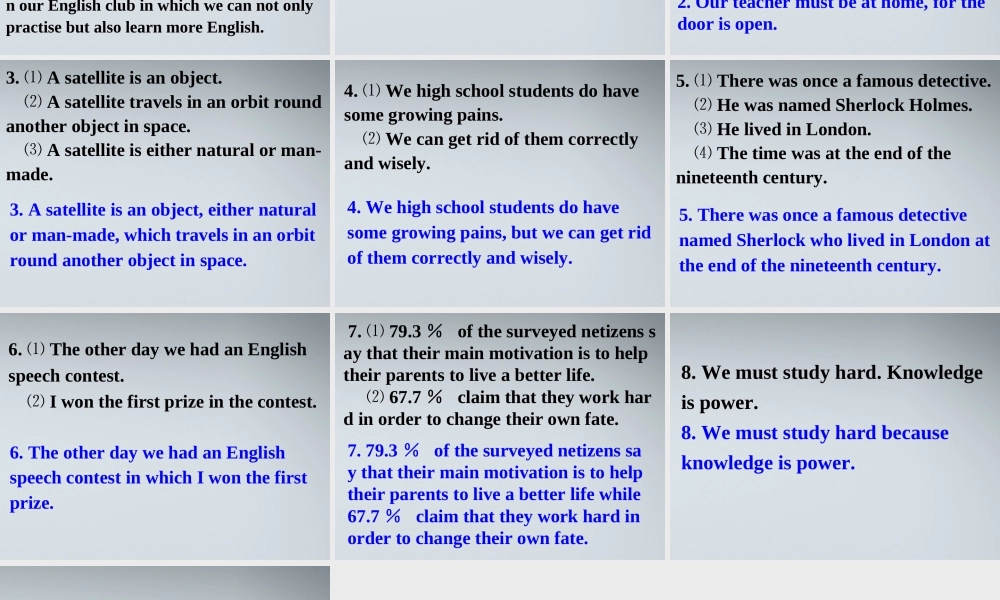有时为了使句子的连贯性更强 , 表达也更为贴切、自然 , 我们在两个或者多个简单句之间加上 and, but, or( 或者 , 否则 ), for ( 因为 ), while( 而 , 却 ), when( 就在这个时候 ), not only ...but also 等并列连词 , 使其成为并列复合句。如: ⑴ Our outdoor activity will last three hours. We’ll be back at about 11 o’clock→Our outdoor activity will last three hours and we’ll be back at about 11 o’clock. ⑵ You must hurry. You’ll miss the plane. →You must hurry or you’ll miss the plane. ⑶ Honey is sweet. The bee stings. →Honey is sweet but the bee stings. 在两个或者多个简单句之间加上 when, after, as, because, where, which, who 等从属连词 , 可以使简单句变成复合句。如: ⑴ We will organize all kinds of activities in our English club. We can not only practise but also learn more English in the activities.( 改为含定语从句的复合句 ) →We will organize all kinds of activities in our English club in which we can not only practise but also learn more English. ⑵ He missed the first bus. He came to school late.( 改为含状语从句的复合句 ) →Because he missed the first bus, he came to school late. →He missed the first bus, so he came to school late. 即时练习将下列各组句子合并成并列复合句或主从复合句。1. He was tired. He went to bed. 1. He was tired, so he went to bed. 2. Our teacher must be at home. The door is open.2. Our teacher must be at home, for the door is open. 3. A satellite is an object. ⑴ ⑵ A satellite travels in an orbit round another object in space. ⑶ A satellite is either natural or man-made. 3. A satellite is an object, either natural or man-made, which travels in an orbit round another object in space. 4. We high school students do have ⑴some growing pains. ⑵ We can get rid of ...



